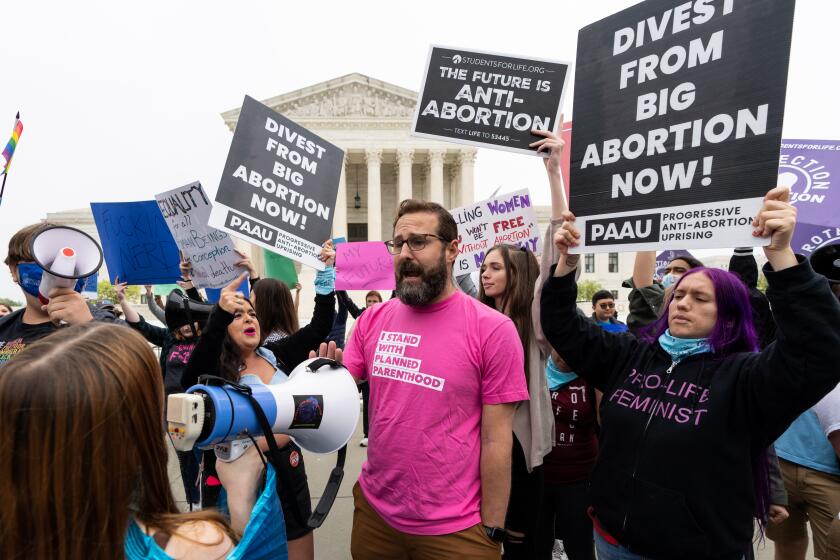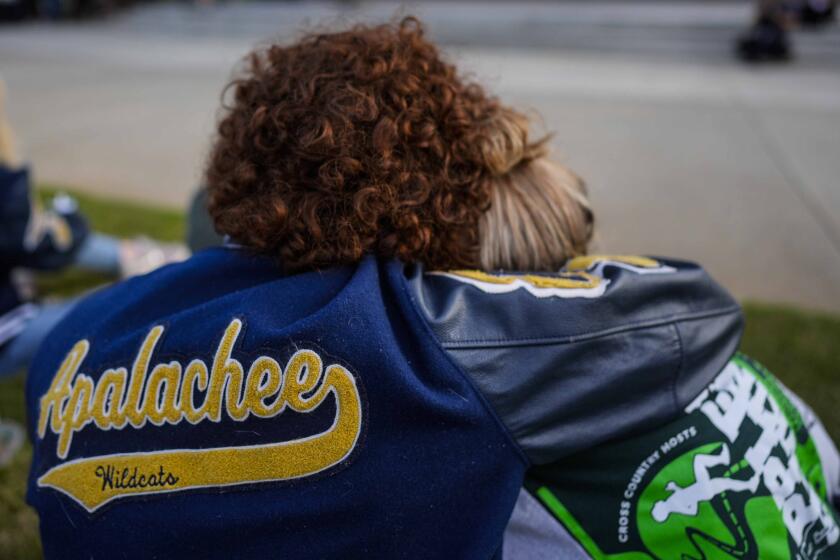Three Alleged U.S. Vigilantes Are Sentenced in Afghanistan
Three Americans charged with torturing Afghan detainees in a private prison were sentenced by an Afghan court Wednesday to lengthy terms behind bars after a trial that defense lawyers claimed did not meet basic international standards of fairness.
Two of the men, bounty hunter Jonathan Keith Idema and his colleague Brent Bennett, were each ordered to serve 10 years. Documentary filmmaker Edward Caraballo received an eight-year term. Four young Afghan accomplices received sentences ranging from one to five years in prison after a six-hour court hearing Wednesday.
The men were arrested July 5 when Afghan authorities raided a home in Kabul, the capital, and found eight Afghan prisoners inside. Several of the captives said they had been tortured, including being starved or burned with hot water, to extract information about Taliban and Al Qaeda.
The defendants denied the allegations. Idema, 48, from North Carolina, and Bennett, 28, said they had been pursuing terrorists with the knowledge of the Pentagon. Caraballo, 42, of New York, said he had been making a film about Idema’s pursuits.
Idema and Caraballo said they would appeal the convictions. It was unclear how Bennett, who was representing himself, would proceed.
A consular official at the U.S. Embassy said after the sentencing that “the trial was fair and in accordance with Afghan law.”
Idema, a former Special Forces soldier who helped the Northern Alliance in the U.S.-led war against the Taliban regime in 2001, reacted angrily to the judge’s decision. “I [expletive] apologize for helping to save” Afghanistan, he told the packed courtroom. “We should have let the Taliban murder every [expletive] one of them.”
The crude remarks brought to a close a trial in which a court interpreter advised the judge, American defense lawyers sought to explain the presumption of innocence and the prosecution used newspaper clippings as its evidence that the detainees were tortured.
No Afghan or U.S. military authorities testified during the five court sessions. Nor did the Afghan prisoners who took the stand describe any acts of torture. The bearded, muscular Idema, wearing a khaki uniform and sunglasses, smoked cigarettes while on the witness stand.
The defense presented several videotapes shot by Caraballo, including one showing Idema meeting a man. The man, who Idema said was an American Army captain coordinating counter-terrorism activities in Kabul, said Idema’s group was “rolling up AQ [Al Qaeda] like it’s nobody’s business.”
The defendants presented video footage showing them being greeted at Kabul airport by senior Afghan government officials, including the city’s security commander, the airport manager and an aide to the former king, Mohammad Zaher Shah.
Defense attorneys said the footage was proof that their clients’ efforts to find and detain terrorists were officially sanctioned and that they had not entered the country illegally. But Judge Abdul Baset Bakhtyari said the tapes proved only that the men had “private contacts” with Afghan officials, not that they were working for the American military.
“Having a private network and friends in Afghanistan does not mean real relations with American forces,” the judge said in his final remarks.
Bakhtyari did not specify what crimes he had found the defendants guilty of. The charges -- kidnapping, torture, theft and illegal entry into Afghanistan -- carried a maximum 20-year sentence.
Idema claimed that American authorities had disowned him because of the allegations of torture, as the U.S. military, after the Abu Ghraib prison scandal, had become sensitive to additional charges of government-sanctioned abuses.
The defendants also alleged that the FBI had illegally seized 500 documents, 300 photographs and 200 videotapes proving the group was working with the knowledge of the Pentagon. The evidence was later returned to the defense but had been tampered with, defense lawyers said.
John Tiffany, Idema’s lawyer, said the judge might have been under pressure to convict the men. “Whether the judge made a decision as a result of pressure exerted by the United States government or whether he doesn’t know how to conduct a trial in accordance with international standards of justice I don’t know,” he said.
The American Embassy, the NATO-run International Security Assistance Force and the U.S.-led military coalition have denied that Idema worked for them, although the U.S. military has acknowledged that it detained for two months a terrorism suspect who was handed over by Idema. Caraballo’s lawyer, Robert Fogelnest said that the Afghan legal system had been destroyed in two decades of war and that the trial had not met international standards. “The United States government has not helped. They have left it to a legal system they full well know is not proficient.”
The trial was marked by inaccurate translations and misunderstandings of basic court proceedings.
At one point, Fogelnest lost patience with the Dari interpreter. “I’ve been told by several people you do not translate what I say,” he said.
“Sit down,” the interpreter ordered.
“Fine, it’s your circus,” Fogelnest told the judge.
In one instance, when Idema, before taking the witness stand, took his oath on the Koran, the packed courtroom erupted into cries of “God is Great!” in the mistaken belief he had converted to Islam.
More to Read
Sign up for Essential California
The most important California stories and recommendations in your inbox every morning.
You may occasionally receive promotional content from the Los Angeles Times.










